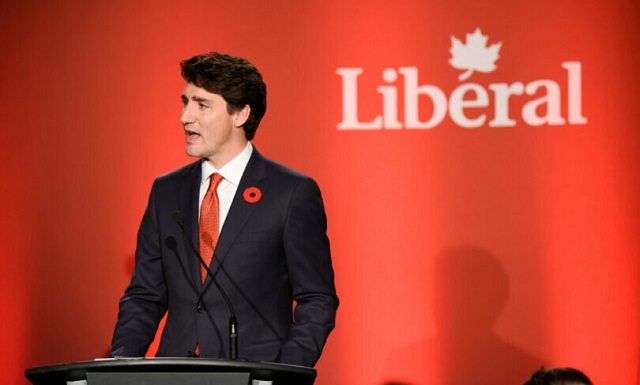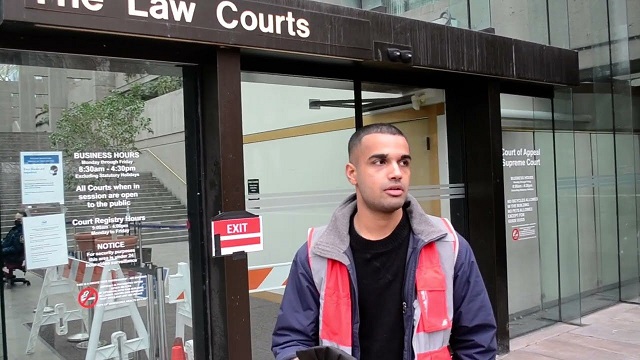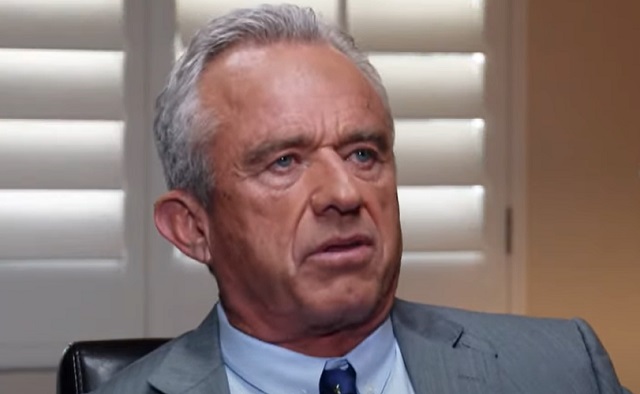Opinion
We want free trade with everyone but Canadians living in other provinces.

Free Trade with everyone but ourselves.
Canadians have been hearing a lot of talk about the need for and benefits from free trade with the Americans, the Europeans, the Chinese, and the Americans. Yah, let’s get it done.
What about free trade within our own country with other provinces?
Not so much.
We have been fighting amongst ourselves over healthcare, education, labour certification, lumber, minerals, water and a thousand other things. The latest is Alberta and British Columbia over oil and wine.
British Columbia with it’s fragile government put up barriers to the twinning of a pipeline, citing environmental concerns. Alberta countered with a ban on British Columbia’s wine.
There is a connection between oil and air pollution but there is also a connection between wine and alcohol related deaths. So is one government more righteous than the other? No, they both looking after the economic well being of their respective provinces.
British Columbia has great dealings with other governments over their energy resources, especially in the north, so they are not so pure in their stance. Alberta will continue to drink their wine, most notably from other countries.
The Federal government is the missing player in this game. They have the power to solve this situation. They can push the pipeline, which they previously approved, through British Columbia’s legal challenge. Will they?
Alberta has not been a supporter of this federal government and British Columbia has shown more support. This government needs British Columbia seats in the next election and will not gain any seats in Alberta in any case.
If they push the pipeline agenda they will be seen as anti-environment and lose seats in British Columbia and possibly in other areas that are environmentally sensitive areas.
If they do not push the pipeline agenda, they may retain their seats in British Columbia but may lose seats in the more right-wing economic sensitive ridings in other parts of the country.
We, Albertans, have been consistent in denouncing the Liberals for everything they have done or said, oftentimes without justification, in the past. We are reaping what we have sown in the political arena, as we wait for the next shoe to drop.
Mr. Trudeau, will push the pipeline agenda, and there will be people who will still complain, drive cars, fly airplanes, heat their homes and drink wine, drive under the influence, or know someone who will die due in some part to alcohol.
Then we will find another provincial barrier to argue about while we clamour for free trade with everyone else. Right?
Addictions
Why can’t we just say no?

From the Frontier Centre for Public Policy
Drug use and violence have become common place in hospitals. Drug-addicted patients openly smoke meth and fentanyl, and inject heroin. Dealers traffic illicit drugs. Nurses are harassed, forced to work amidst the toxic fumes from drugs and can’t confiscate weapons. In short, according to one nurse, “We’ve absolutely lost control.”
“Defining deviancy down” is a cultural philosophy that emerged in the United States during the 1990s.
It refers to society’s tendency to adjust its standards of deviancy “down,” so that behaviours which were once unacceptable become acceptable. Over time, this newly- acceptable behaviour can even become society’s norm.
Of course, the converse must also be true — society looks down on those who label social behaviours “wrong,” deeming them moralistic, judgemental or simply out of touch with the realities of modern life.
Thirty years later, this philosophy is entrenched in British Columbia politics and policies. The province has become a society that cannot say “no” to harmful or wrong behaviours related to drug use. It doesn’t matter if you view drug use as a medical issue, a law-and-order issue, or both – we have lost the ability to simply say “no” to harmful or wrong behaviour.
That much has become abundantly clear over the past two weeks as evidence mounts that BC’s experiment with decriminalization and safe supply of hard drugs is only making things worse.
A recently-leaked memo from BC’s Northern Health Authority shows the deleterious impact these measures have had on BC’s hospitals.
The memo instructs staff at the region’s hospitals to tolerate and not intervene with illegal drug use by patients. Apparently, staff should not be taking away any drugs or personal items like a knife or other weapons under four inches long. Staff cannot restrict visitors even if they are openly bringing illicit drugs into the hospital and conducting their drug transactions in the hallways.
The public was quite rightly outraged at the news and BC’s Health Minister Adrian Dix quickly attempted to contain the mess by saying that the memo was outdated and poorly worded.
But his facile excuses were quickly exposed by publication of the very clearly worded memo and by nurses from across the province who came forward to tell their stories of what is really happening in our hospitals.
The President of the BC Nurses Union, Adriane Gear, said the issue was “widespread” and “of significant magnitude.” She commented that the problems in hospitals spiked once the province decriminalized drugs. In a telling quote, she said, “Before there would be behaviours that just wouldn’t be tolerated, whereas now, because of decriminalization, it is being tolerated.”
Other nurses said the problem wasn’t limited to the Northern Health Authority. They came forward (both anonymously and openly) to say that drug use and violence have become common place in hospitals. Drug-addicted patients openly smoke meth and fentanyl, and inject heroin. Dealers traffic illicit drugs. Nurses are harassed, forced to work amidst the toxic fumes from drugs and can’t confiscate weapons. In short, according to one nurse, “We’ve absolutely lost control.”
People think that drug policies have no impact on those outside of drug circles – but what about those who have to share a room with a drug-smoking patient?
No wonder healthcare workers are demoralized and leaving in droves. Maybe it isn’t just related to the chaos of Covid.
The shibboleth of decriminalization faced further damage when Fiona Wilson, the deputy chief of Vancouver’s Police Department, testified before a federal Parliamentary committee to say that the policy has been a failure. There have been more negative impacts than positive, and no decreases in overdose deaths or the overdose rate. (If such data emerged from any other healthcare experiment, it would immediately be shut down).
Wison also confirmed that safe supply drugs are being re-directed to illegal markets and now account for 50% of safe supply drugs that are seized. Her words echoed those of BC’s nurses when she told the committee that the police, “have absolutely no authority to address the problem of drug use.”
Once Premier David Eby and Health Minister Adrian Dix stopped denying that drug use was occurring in hospitals, they continued their laissez-faire approach to illegal drugs with a plan to create “safe consumption sites” at hospitals. When that lacked public appeal, Mr. Dix said the province would establish a task force to study the issue.
What exactly needs to be studied?
The NDP government appears to be uninformed, at best, and dishonest, at worst. It has backed itself into a corner and is now taking frantic and even ludicrous steps to legitimize its experimental policy of decriminalization. The realities that show it is not working and is creating harm towards others and toward institutions that should be a haven for healing.
How quickly we have become a society that lacks the moral will – and the moral credibility – to just to say “no.”
Susan Martinuk is a Senior Fellow with the Frontier Centre for Public Policy and author of Patients at Risk: Exposing Canada’s Health-care Crisis.
National
Anger towards Trudeau government reaches new high among Canadians: poll

From LifeSiteNews
A recent Nanos research survey found that ‘Pessimism and anger remain the top emotions Canadians say best describe their views of the federal government in Ottawa.’
Canadians’ anger towards Prime Minister Justin Trudeau and his Liberal government has reached a record high, according to a new poll.
According to a national survey published by Nanos Research this month, 31% of Canadians feel anger and pessimism towards the Trudeau government, which marks an all-time low in satisfaction for government leadership.
“Which of the following feelings best describes your views of the federal government in Ottawa?” the poll questioned.
In addition to the 31% feeling angry and pessimistic respectively, 11% feel uninterested, while only 1% and 10% feel satisfaction and optimism, respectively. 6% were unsure of their feelings towards the Trudeau government.
“Feelings of anger toward the federal government have increased or held steady in every region, with the largest increases among residents of Quebec (December: 12%; March: 24%) and Atlantic Canada (December: 21%; March: 38%). Pessimism and anger remain the top emotions Canadians say best describe their views of the federal government in Ottawa,” the research found.
In recent months, Trudeau’s popularity has plummeted, with polls projecting a massive Conservative victory in the upcoming election.
Trudeau’s popularity has been falling and his government has been embroiled in scandal after scandal, one of the latest being a federal court ruling that the prime minister’s use of the Emergencies Act to end the 2022 Freedom Convoy was “not justified.”
Even top Liberal party stalwarts have called for him to resign.
Indeed, Canadians anger and dissatisfaction with Trudeau has become a topic of conversation on many social media platforms, with Canadians detailing how the Trudeau government has made their life less affordable.
Numerous videos are being uploaded to social media by Canadians explaining that they struggling to make ends meet amid the rising cost of living and Trudeau’s ever-increasing carbon tax, while many immigrants are telling others not to come to Canada.
-

 Alberta2 days ago
Alberta2 days agoAlberta official reveals ‘almost all’ wildfires in province this year have been started by humans
-

 Alberta2 days ago
Alberta2 days agoPolitical parties will be part of municipal elections in Edmonton and Calgary pilot projects
-

 Bruce Dowbiggin2 days ago
Bruce Dowbiggin2 days agoCome For The Graduate Studies, Stay For The Revolution
-

 Censorship Industrial Complex2 days ago
Censorship Industrial Complex2 days agoJordan Peterson, Canadian lawyer warn of ‘totalitarian’ impact of Trudeau’s ‘Online Harms’ bill
-

 COVID-191 day ago
COVID-191 day agoPfizer reportedly withheld presence of cancer-linked DNA in COVID jabs from FDA, Health Canada
-

 National1 day ago
National1 day agoAnger towards Trudeau government reaches new high among Canadians: poll
-

 COVID-1919 hours ago
COVID-1919 hours agoTrudeau gov’t has paid out over $500k to employees denied COVID vaccine mandate exemptions
-

 International18 hours ago
International18 hours agoRFK Jr tells EWTN: Politicization of the CIA, FBI, Secret Service under Biden is ‘very troubling’








